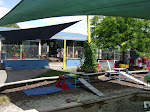At Grasslands Kindergarten we talk lots about being a good friend, what a good friend is and does. I interviewed small groups of children to gather their thoughts, ideas and insights.
It was very enlightening.
We have been using ‘Playing as a good friend’ at Grasslands Kindergarten for quite some time in order to provide simple and consistent positive guidance for children. It doesn’t come naturally, but it does work. It’s now part of our kindergarten culture and will work if used at home as well.
What is ‘Playing as a Good Friend?’
There are three basic rules:
1. We don’t hurt anyone (or use rude gestures)
2. We use good words (includes: No shouting, and using appropriate tone/pitch of voice)
3. We listen (to each other, to the teachers, and to parents/whanau)
For this to work, it is important for the adults using this with children to support each other and be consistent, especially with the language we use. For example rather than saying to children “Are you playing nicely?” we say , “Are you playing as a good friend?” This is more meaningful because we have discussed with children what being a good friend is and what it means to be a good friend to each other. This is continually reinforced and reflected upon in daily practice and in interactions with children and between children.
What do we do when children forget to play as good friends?
First we stop the child and find out what happened, asking questions like “Tell me what happened?” We listen to what the child says, and acknowledge their feelings. We are very clear about the behaviour we are trying to address. For example, we say “You stopped playing as a good friend when you hurt/didn’t listen to/ shouted at ….” Sometimes the issue can be resolved on the spot. We encourage children to think of alternative solutions to the issue through strategies such as asking, “Can you think of another way that you could have asked for that/said that/done that?” We often model the appropriate words and/or behaviours to help the child. For example, “ You need to use your words to tell ——— what it is that they are doing that you don’t like”, “You need to tell ————— how you are feeling and ask them to stop.”
We love hearing your feedback. Please post a comment. Ally


.JPG)











